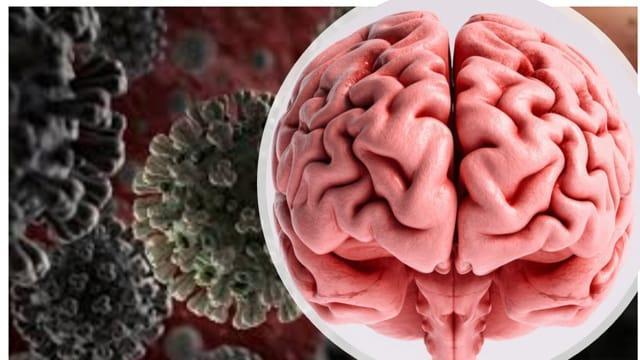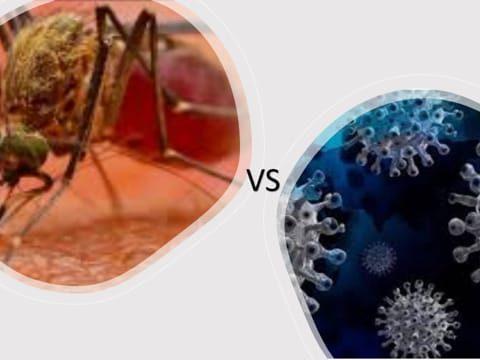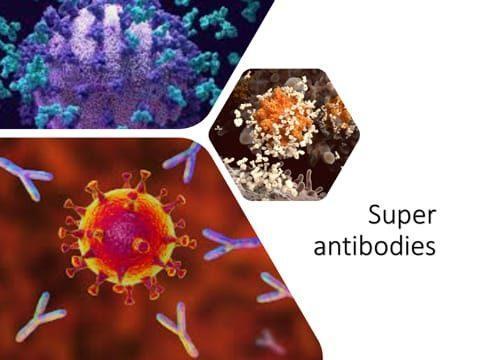In 2020 when COVID-19 graced us with its unwanted presence, it soon became apparent that the disease has some unwonted devastating side effects.
Studies have shown that COVID-19 damages the brain in several ways: it could limit the flow of blood to brain tissues, it could cause autoimmunity by triggering the production of immune molecules harmful to brain cells, or it could simply attack brain cells. It’s long been known that COVID-19 can cause strokes, psychosis and trigger memory loss.
The cerebral cortex is that area of the brain responsible for memory, thought, perception and sensation. Scientists have compared the images of people’s brains from before and after they had COVID-19 to show that there was a loss of grey matter in many areas of the cerebral cortex.
Join our WhatsApp ChannelBut do not panic, the virus is incapable of negotiating past the brain’s defensive mechanism, which is the blood-brain barrier (BBB). This BBB is made up of semipermeable endothelial cells and is selective, preventing solutes in the circulating blood from crossing into the extracellular fluid of the nervous system (CNS or nerve cells).
Neurones, which are in literal meaning, information messengers, reside in the CNS. Therefore, since the virus is incapable of passing through this highly defensive mechanism, it does not attack the neurones.
But, remember that Coronavirus inhabits the nose, and scientists are speculating that the virus might be accessing the brain by passing through the lining of the nasal cavity called the olfactory mucosa. This lining borders the brain! The story becomes even more interesting when autopsy results of people who died of COVID-19 showed no presence of the virus in the brain.
Astrocytes, which are found in the CNS perform many functions, one of which is the control of the BBB (blood-brain barrier). Brains from people who died of COVID-19 showed the virus’ preference to infecting the astrocytes. This then explains in some way, the neurological affects associated with COVID-19.
Pericytes are cells found in capillaries. They play an essential role in regulating the flow of blood to the brain, heart and kidney as well as in maintenance of homeostasis (equilibrium in physiological processes) in the body, including the blood-brain barrier. By affecting these cells as evidence suggested in a preprint in BioRxiv, by Hirunpattarasilp and coworkers at the University College, London; COVID-19 through the reduction of blood flow to the brain can really have a deleterious impact on the brain.
The Coronavirus, SARS-CoV-2, causes COVID-19 infection primarily in the respiratory tract. But the virus also causes impairment in other organs, which include the brain, kidney and heart. Injuries to other parts of the body as aforementioned could be a sign of spread of the virus through the blood or simply the result of inflammatory responses released from the lungs (i.e. autoimmunity responses). These injuries may be contributors to long covid.
Long COVID, also known as post-acute sequelae (or sequel) of a SARS-CoV-2 infection, is a phrase used to describe the long-term effects of COVID-19. Some of the effects of long COVID-19 include cognitive impairment otherwise popularly known as “brain fog”, fatigue, breathlessness, hallucinations, organ damage, etc. The cause of the condition is not definitive.
One suspect is a situation where the main acute COVID-19 infection is cleared but there still remains a reservoir of the virus hiding in many parts of the body e.g. the liver, intestine or the brain. Such viral reservoir will then continue to cause damage resulting in a debilitating condition.
Another suspected cause is the immunological reaction produced by the body as a response to COVID-19 infection. The immune response can go into overdrive generating antibodies and other immunological reactions, especially cytokines, which then attack and damage the body’s own tissues. There are evidences that neurological disorders (such as psychosis, stroke and memory impairment), might be caused by these autoantibodies (autoimmune responses), passing through the blood-brain-barrier into the brain.
But in a recent collaborative study published in the journal, Cell, by researchers from Germany and Belgium, the theory that the virus can gain entrance into the brain through the olfactory mucosa was debunked. Instead the study found that it is the “sustentacular” cells of the olfactory epithelium that the virus infects and not the olfactory sensory neurons. These cells are found in many tissues in the body, including the testicle, where they primarily function as metabolic and structural supports.
If this were the case, then, the neurological damage caused by the virus could be temporary as damaged sustentacular cells could regenerate.
But the study itself is not conclusive. This is because, the study did not look into other neurological disorders associated with COVID-19 infections like brain fog, breathlessness, lethargy, etc.
Nevertheless, the study appears to support an earlier study published in April 2021 in the journal, Brain, by scientists from Columbia University, USA. In the study, the researchers failed to find any evidence that the virus was able to gain entrance inside the brain cells. But they did see many brain abnormalities associated with infections by the virus. This led them to conclude that the inflammatory responses caused by the virus in other parts of the body or in the brain’s blood vessels, might be responsible for the neurological abnormalities seen in cases of COVID-19 infections.
This confusion amongst scientists to arrive at a consensus on the impact of COVID-19 in the brain will continue to rage until a better understanding of the COVID-19 infection is made. As it currently stands, the virus continues to evolve and so too, is our knowledge of its effect in the body.



















Thank you for this very interesting and informative article!! Nice reading for a cold Sunday!